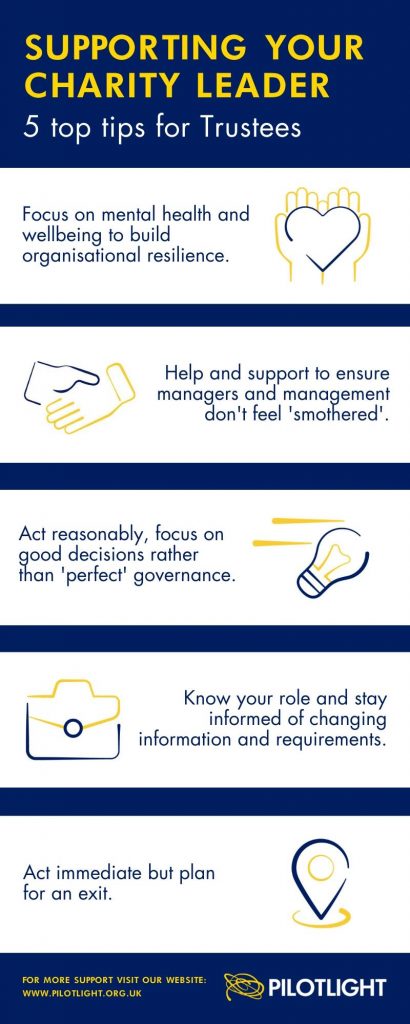10 questions trustees should ask to perform a charity health-check
With many charitable organisations facing existential challenges, there is an increasing amount of guidance to help trustees navigate the decisions ahead.
 Peter Mimpriss, a veteran trustee of 33 charities, has written ’10 questions trustees should ask to perform a charity health-check’. The guide provides an overview of the essential qualities of an effective charity board.
Peter Mimpriss, a veteran trustee of 33 charities, has written ’10 questions trustees should ask to perform a charity health-check’. The guide provides an overview of the essential qualities of an effective charity board.
In this article, we look at Peter’s advice, as well as pulling together other useful resources to help trustees assess the situation their charity is in.
In the coming months, charities and trustees will experience an increasingly challenging operating environment. Indeed, many are at risk of being forced to close. To help identify challenges charities need to respond to, Peter Mimpriss has developed a simple Emergency Health Test (below).
The test sets out ten questions. If a charity can answer ‘yes’ to them all, then it is probable the charity will not be at risk of closure. If not, then it is likely that there will be a risk of closure. That risk increases depending on the number of tests that cannot be answered in the affirmative. In those circumstances, trustees need to take very urgent steps to address the problems.
10 questions to health-check your charity:
-
- Does the charity have a really good cash flow forecast that is updated every month?
- Does the charity currently satisfy the balance sheet test for solvency?
- Are there adequate free reserves for the charity?
- Do the trustees understand the difference between their restricted and unrestricted funds?
- Do the trustees know the approximate amount of the charity’s unrestricted funds and of its liabilities?
- Are the trustees satisfied that the charity has an effective and up-to-date risk review?
- Does the charity have a truly effective audit committee which enquires into potential financial risks for the charity?
- Does the charity have updated contingency plans?
- Do the trustees have the boldest fundraising strategy, which is supported by all the trustees and to which those trustees with the best contacts have committed to lead?
- Does the charity have excellent communications with present and past donors? Is this monitored by the trustees to ensure that it is as effective as possible?
Additional guidance for trustees
Association of Charitable Foundations
The Association of Charitable Foundations [ACF] identifies that efficient decision making frameworks, understanding of lived experience and diversity of knowledge and personality on boards will be important success factors.
ACF states that foundations and charities have to have strong objectives, but also be flexible in balancing long and short term. The report concludes with seven pillars of good foundation governance.
Read ACF’s full report on strategy and governance here
Pilotlight
With fears for the wellbeing of charity leaders who are taking on huge responsibilities, Pilotlight reinforced the message that support to charities is more than money. Their key messages for trustees are:
- Focus on mental health for resilience;
- Don’t smother;
- Focus on good decisions rather than perfect governance;
- Know your role and stay informed;
- Act immediately, but plan for an exit.
National Council for Voluntary Organisations
Not long after the crisis had taken hold in the UK, the National Council for Voluntary Organisations [NCVO] held a webinar on governing during a pandemic. The main points raised were:
- Decisions must be in line with charitable objectives;
- Severe incident reporting is not suspended: each organisation must evaluate any Covid-19 related risk;
- Develop a cash flow forecast, seek advice early and make plans;
- Any meetings taken online must be in line with governance documents, decisions must be circulated;
- Delegate more authority temporarily to the charity leaders to enable them to be nimble;
- Be open to partnerships with non-charitable organisations;
- Do scenario planning: develop plans to handle each scenario;
- Review and tweak plans regularly.
NCVO has also opened guidance on its website, which can be viewed here.
Charity Commission
The UK Charity Commission has also issued guidance to trustees about financial decision making. The guidance recommends that charities consider what is in their best interest, leverage trustees’ skills and alter business models. They should go through a process that involves considering their existing financial situation. This includes looking at options for minimising costs, protecting and increasing income, and keeping operations and finances under regular review. It also gives legal guidance for if a charity has to be closed.
The guidance provides a framework for deciding between meeting urgent needs now or dialling down services in order to survive into the future. Finally, the guidance discusses whether formal structures such as managed insolvency, joint working or a merger with another charity could be the best way forward.
UK Charity Commission guidance
About Peter Mimpriss
Peter Mimpriss has wide experience in the charity sector, having been a trustee of twenty four national operating Charities and nine national grant making Foundations. He is also the author of The Qualities of an Effective Charity Board, which he wrote in 2016.
